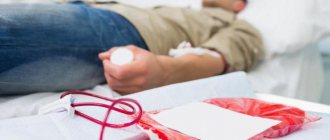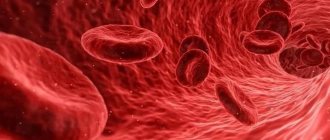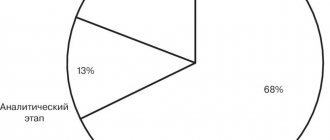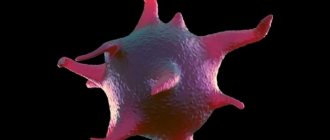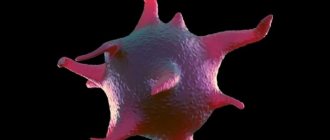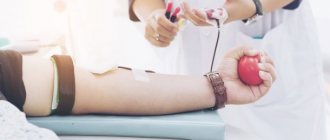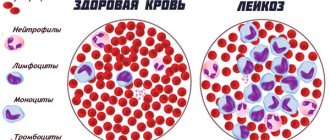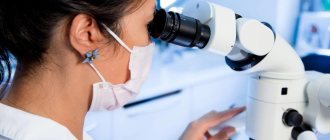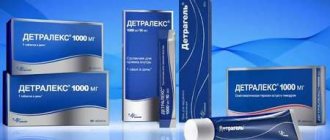Why should I donate blood? Aren't there enough donors already?
In Russia, only 1.7% of the population are donors.
In order to ensure an adequate supply of blood, it is necessary that at least 4% of the population be donors. Many people are not suitable for donation due to contraindications, since the blood must be safe for patients. Donors can only be healthy people over the age of 18. The Hematology Research Center is constantly in need of whole blood donors, plasma donors, platelet donors, and stem cell donors. The Center undergoes long-term treatment for cancer patients for whom blood and its components are vital. Without them, they simply will not be able to survive after immune-lowering doses of chemotherapy.
What is the state of blood donation now?
In Russia, there are less than half of the donors than there should be in order for the needs of hospitals to be covered. This is why it is necessary for donors to donate blood regularly. In addition to major tragic events (terrorist attacks, fires, etc.), there is a constant need in modern medicine for components and products of donor blood, because almost any area of it now cannot do without the use of transfusion therapy (surgeries, hematology, emergencies, road accidents, women in labor, children, oncology and etc.).
Do I have enough blood to share?
An adult has 4-5 liters of blood. During blood donation, 450 ml of blood is taken - this accounts for 8% of all blood, which is restored within 72 hours. Drainage is completely safe and stimulates the immune and hematopoietic systems.
How long does the blood donation procedure take?
When you go to donate whole blood, expect 1 hour 10 minutes. This is how much time it will take you to fill out the form, undergo a medical examination, and rest after donating blood. Donating whole blood takes only 5-10 minutes.
If you donate plasma, you will spend 1 hour 40 minutes, including 40 minutes on the plasma donation procedure itself.
The entire process of donating platelets will take you 2 hours 30 minutes, including 1 hour 30 minutes for the donation itself.
How are donors selected?
All donors undergo a medical examination before each blood donation. At this time, a clinical analysis of capillary blood from a finger is carried out, a thorough interview with a transfusiologist, who reviews the questionnaire filled out by the donor and, based on the donor’s health condition and the results of the analysis, determines whether the person is suitable for donation. It is very important that the donor who fills out the questionnaire answers the questions asked objectively.
All information about the donor is confidential.
But there are well-known contraindications to donation, temporary and permanent, which we recommend that those wishing to become a donor familiarize themselves with.
Can I get a viral infection while donating blood?
Infection of a donor during blood donation is impossible, since his blood does not come into contact with the blood of another person, and during the procedure, disposable sterile needles and bags and blood collection instruments are used, which completely exclude the possibility of interaction of the donor’s body with the external environment.
The platelet donation procedure (plateletpheresis) uses a closed, disposable system where the plateletpheresis machine is charged immediately before each donor.
Only highly qualified medical specialists from the donor service with many years of experience work with donors.
Why do you need to rest after blood donation?
Each donor should rest for at least 10 minutes after donating. Even if you feel fine after donating, drink juice, tea, water or coffee. This helps replenish fluid loss in the body. If you feel weak after donating blood, the experienced staff at the donor service will be able to help you quickly.
I don't remember the last time I donated blood. How do I find out?
This information can be clarified at the donor department of the National Medical Research Center for Hematology on weekdays from 9:00 to 17:30 by phone:
+7 +7
What will they do with my blood?
The blood of each donor is thoroughly examined. First, the blood group according to the AB0 system, Rh and Kell affiliation are determined. This is necessary so that the patient receives the blood component that suits him. Testing for blood-borne infections and syphilis is then performed to ensure safe transfusion.
Whole donor blood is not used. Each dose of blood is divided into red blood cell suspension and plasma. The patient receives exactly the component he needs. Thus, the blood of one donor can save the lives of several patients.
Red blood cell suspension is used during routine operations, for blood loss, trauma, and to treat anemia.
Plasma is used for liver disease, blood loss, to treat blood clotting disorders, and to treat shock.
Is it possible to purchase (purchase) blood and its components from you?
Blood and its components cannot be purchased.
Blood taken from donors at the Hematology Research Center is used exclusively for patients of the Center.
Is there a blood substitute?
Blood is a unique organic material that cannot be artificially produced. The only source of blood is the donor.
What will I get for donating blood?
The donor who donated blood (components), first of all, will receive monetary compensation for food in the amount of 5% of the established subsistence level, 2 days off at the place of work (on the day of donating blood and any other day of his choice within a year after donation), and also high self-esteem from the knowledge that you have helped other people.
In addition, the donor will have constant monitoring of his health.
Is my employer required to let me go from work while I donate blood?
Yes, according to the Law of the Russian Federation “On the donation of blood and its components” dated July 20, 2012 No. 125-FZ and the Labor Code of the Russian Federation (Art. 186).
How often can you donate blood and its components?
There are different types of donation: whole blood donation and component donation.
Whole blood is allowed to be donated no more than 5 times a year for men and no more than 4 times a year for women, and the intervals between blood donations must be at least 60 days.
Certain blood components can be donated more often. The intervals between different types of donation of blood components are indicated in the table (read more).
When donating plasma, you are allowed to donate a total of no more than 12 liters of plasma per year.
As for plateletpheresis, the donor is allowed to donate platelets no more than once a month. This is due to the fact that the National Medical Research Center of Hematology uses hardware plateletpheresis, in which the dose of platelets taken at a time is greater than with intermittent (read more).
How is donating blood different from donating plasma and donating platelets?
When donating plasma, blood, after part of the plasma is separated from it, is immediately returned back to the donor’s body. When donating platelets, only platelets are separated from the donor blood, and the remaining components are returned to the donor.
Isolation of plasma and platelets from the blood occurs by passing donor blood through a special apparatus with a closed disposable centrifugation system.
Plasma can be donated at intervals of at least 2 weeks, no more than 12 liters per year, whole blood - no more than 5 times a year at intervals of 2 months, platelets - 12 times a year at intervals of 1 month.
After five regular blood donations, it is better to take a break for 3-4 months. Plasma is restored within a few days, blood within a month.
The process of donating platelets takes about 1.5 hours, plasma - about 40 minutes, blood sampling - about 10-15 minutes. However, the total time that the donor will need to spend in a medical facility will be 2.5 hours in the first case, 1 hour 40 minutes in the second case, and 1 hour 10 minutes in the last case.
Can a smoker be a donor?
Smoking is not a contraindication to donation. Experts recommend refraining from smoking an hour before the blood donation procedure and not smoking for one to two hours after donation.
What should you do to restore your body after donating blood?
On the day of blood donation, heavy physical and sports activities and heavy lifting are not recommended. There are no restrictions on driving a car on the day of blood donation.
For two days, it is recommended to eat well and regularly, drink at least 1-2 liters of liquid per day (alcohol is not recommended).
Then lead your normal lifestyle.
Complete restoration of blood composition occurs within 5-7 days. The rate of recovery of different blood components is different. To restore your blood composition faster, it is recommended to drink more fluids: juices, tea. Proper nutrition is necessary: the donor’s diet should always contain protein, which determines the level of hemoglobin in the blood, as well as foods high in iron and calcium.
Do regular blood donors have to use their blood donation vacation days during the calendar year?
In accordance with Article 186 of the Labor Code of the Russian Federation, after each day of donating blood and its components, the employee is given an additional day of rest. The specified day of rest, at the request of the employee, can be added to the annual paid leave or used at other times during the year, after donating blood and its components.
In the previous version of this article, the employee’s right to use an additional day of rest after donating blood was limited to the calendar year (from January 1 to December 31), which infringed on the interests of donors. Moreover, in a number of cases, namely when donating blood in the last days of the calendar year, it was not possible to implement it.
In accordance with the amendments made to the Labor Code by Federal Law No. 90-FZ of June 30, 2006, the word “calendar” was excluded from Article 186. Thus, donors can use the additional day of rest they are entitled to within 365 days after donating blood.
Are the actions of an employer legal when it refuses to provide days to an employee-donor, citing the fact that he donated blood before he had yet joined the organization?
The legislation of the Russian Federation does not contain a direct answer to the question posed. On the one hand, the provision of unused additional days of rest provided for in Part 4 of Art. 186 of the Labor Code of the Russian Federation, for a new place of work (with another employer) is not provided for by law.
On the other hand, Art. 186 of the Labor Code of the Russian Federation does not in any way limit the donor’s right to use rest days only at the previous place of work, however, this position may lead to a labor dispute with the employer, which will have to be resolved in the bodies for considering individual labor disputes (Chapter 60 of the Labor Code of the Russian Federation).
How can I confirm my right to the title “Honorary Donor”?
Thanks to the unified donor registration system being created in our country, all donations are recorded in the databases of Blood Service institutions; the data must be stored there for many years.
Please note that to obtain the right to be awarded the “Honorary Donor of Russia” badge, only gratuitous donations are taken into account.
Is it possible to become an “Honorary Donor of Moscow”?
No, the “Honorary Donor of Moscow” badge is provided only by blood service institutions subordinate to the Moscow Department of Health. The Hematology Research Center is an institution subordinate to the Russian Ministry of Health, from us you can receive the “Honorary Donor of Russia” badge.
Is it possible to be a donor to a nursing mother?
Today, one of the temporary contraindications is the period of pregnancy and lactation. 1 year must pass after birth and 3 months after the end of lactation.
Can the presence of Kell (+) antigens in the blood become a disqualification for donation?
The presence of Kell (+) antigens in the donor's red blood cells does not mean that a person cannot become an active donor.
If such an indicator is present in the blood, he can be a donor of plasma and platelets.
Read more about Kell accessories at this link.
Is it possible to become a donor if a close relative has inactive chronic hepatitis B?
In this situation, the person is a contact person with a hepatitis patient and must be exempted from donation.
What causes a citrate reaction?
When donating platelets, in order to avoid blood clotting when it passes through a centrifuge to separate platelets and plasma from it, sodium citrate (sodium citrate trisubstituted 2-aqueous) is used.
The citrate reaction is the body's reaction to intolerance to sodium citrate.
Therefore, regular platelet donors should try to donate platelets once every two to three months, as well as take calcium vitamins after donation and follow nutritional recommendations (read more).
Chylosis is a blood disease?
Chylosis is not a disease, but a condition that indicates the presence of triglycerides in the blood - fatty particles (neutral fats) that do not allow for an accurate diagnosis. Normally they should not be in the blood. After centrifugation, such blood becomes white and very thick, resembling sour cream in appearance.
The reason for the high level of neutral fats and the formation of chylous serum is improper preparation for blood collection, when alcohol or fatty foods are consumed by the donor before donation.
Chylous serum does not make it possible to isolate blood components. Therefore, a blood test cannot be performed. It is also impossible to use “fat” blood for transfusion to the recipient.
After 10-12 hours, the level of triglycerides in the blood decreases to the initial level.
Find out how to feed your donor properly.
How long after donation can workers in hazardous industries return to work?
If you work in a hazardous industry, the interval between donation and going to work should be at least 12 hours.
Can donations for which compensation for food were paid be considered gratuitous? Will they be considered for the Honorary Donor designation?
All donations after which you received only monetary compensation for food will be taken into account when receiving the “Honorary Donor of Russia” badge.
Donors who donate blood and/or its components (except for blood plasma) 40 or more times or blood plasma 60 or more times are awarded the “Honorary Donor of Russia” badge.
Also, amendments introduced by Article 61 of the Federal Law of November 25, 2013 No. 317-FZ “On amendments to certain legislative acts of the Russian Federation and invalidation of certain provisions of legislative acts of the Russian Federation on issues of protecting the health of citizens in the Russian Federation” to Article 23 of the Federal Law dated June 20, 2012 No. 125-FZ “On the donation of blood and its components”, established the most optimal formula for calculating quantitative criteria for achieving the right to award in cases of mixed donation.
Now, if a donor has, for example, twenty-five or more free donations of whole blood behind him, and then began donating plasma free of charge, the right to an award will come with a total number of donations of 40 times.
If a donor has switched to the category of plasma donors, having previously donated whole blood less than 25 times free of charge, then in order to receive the right to be awarded, he will need to continue to donate free plasma until he reaches a total number of donations of 60 times.
The law stipulates that the donation of any cellular component (erythrocytes, platelets or granulocytes) is equivalent to the donation of whole blood. Read more.
Annual cash payment to persons awarded the “Honorary Donor of Russia” badge
Receiving the “Honorary Donor of Russia” badge allows you to receive social support measures listed in Art. 23 Federal Law No. 125 dated July 20, 2012, one of them is an annual cash payment.
The amount of such payment is 10,557 rubles (see Article 24 of the Federal Law dated July 20, 2012 No. 125). It is indexed once a year on January 1, based on the inflation rate, which is established by the Federal Law on the federal budget for the appropriate financial year and planning period. This compensation is not subject to personal income tax. The annual payment in 2021 is RUB 15,109.46.
How to prepare for donating blood?
When preparing to donate blood and its components, the following rules must be observed:
- avoid casual sexual intercourse, which may lead to sexually transmitted viral infections: viral hepatitis B, viral hepatitis C, other viral hepatitis, syphilis, HIV and others;
- avoid cosmetic manipulations: tattoos, piercings, implants, scarring, split tongue and others. Otherwise, blood can only be donated six months after one of these procedures;
- Do not come for donation in a sick state: with a runny nose, cough, headache, sore throat, etc. It is better to postpone the procedure if you have an exacerbation of a chronic disease, if you are taking medications and in a state of overwork;
- the day before and on the day of donation, exclude fatty, fried, spicy, smoked foods, dairy products, eggs, butter, bananas, citrus fruits, and nuts from your diet;
- in the morning on the day of donation, have a “light” breakfast (sweet tea, jam, bread, crackers, dried cereals, boiled cereals, pasta in water without oil, steamed fish, juices, fruit drinks, compotes, mineral water, vegetables, fruits (except citrus fruits and bananas).It is not recommended to undergo the donation procedure on an empty stomach;
- 10 days before donation, refrain from taking antibiotics, 5 days - salicylates and analgesics, two days - from drinking alcoholic, low-alcohol drinks and beer, two hours - from smoking;
- donors of blood and its components are strictly prohibited from using narcotic drugs, psychotropic substances, their analogues, toxic or other intoxicating substances.
What benefits can I expect as a donor?
Donors who donate blood or its components on a reimbursable basis are paid monetary compensation and provided with free food. On the day of the procedure, during working hours, the donor is released from work while maintaining the average earnings for that day.
If blood needs to be donated during vacation, on a holiday or day off, the employee will be given a day off (without pay), and the military will be given the same pay. Also, the donor is provided with one day of rest, popularly known as “time off”, with the preservation of wages, which can be added to the labor leave or used at any time.
If a donor donates blood for free, he is also released from work on the day of the procedure while maintaining his average earnings. In addition, the donor is given one more additional day of rest, but without pay.
How to behave after the procedure?
If you strictly follow all the recommendations of the medical staff before and after the procedure, then you don’t have to worry about your well-being. But it’s worth knowing the basic rules of behavior after the procedure.
What should be done:
- rest under medical supervision for 30 minutes;
- If you feel unwell, report it immediately;
- drink a lot and eat protein foods 48 hours after donating blood and its components.
What not to do:
- remove the bandage from your hand and/or wet it for four hours;
- immediately after donating blood and its components, drive a vehicle;
- smoke for 1–2 hours, drink alcoholic, low-alcohol drinks and beer for 24 hours;
- lift weights and perform activities related to physical stress on the arm from which blood and its components were taken - for 12 hours;
- engage in activities that require significant physical effort - for 24 hours.
What types of blood donation are there?
The most common method is to donate whole blood. It is taken from a vein in the arm at an average of 450+/-50 ml at a time and lasts 7-10 minutes.
You can donate not whole blood, but its components, for example, plasma - the procedure is called plasmapheresis, or platelets - thrombocytapheresis.
During these procedures, only the component necessary for clinical use is selectively extracted from the donor's blood, and all other components are returned to the bloodstream.

